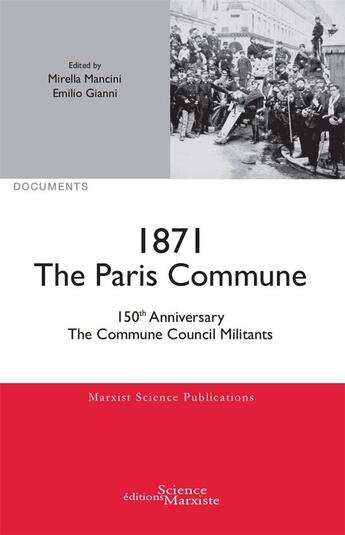Résumé:
One hundred and fifty years ago, in March 1871, in a single city - Paris - and in a very short time span - 72 days - the «storming of heaven» attempted by the proletariat and ferociously repressed by a rising bourgeoisie resolved, in practice, fundamental theoretical issues of socialism that... Voir plus
One hundred and fifty years ago, in March 1871, in a single city - Paris - and in a very short time span - 72 days - the «storming of heaven» attempted by the proletariat and ferociously repressed by a rising bourgeoisie resolved, in practice, fundamental theoretical issues of socialism that until that moment had only had a provisional solution.
In his Address on The Civil War in France (May 30th 1871), Marx dealt with this crucial point, drawing, precisely from the Commune, a theoretical balance that became a fundamental stage in the elaboration of the Marxist science of revolution, grasping a fundamental novelty: «Its true secret was this. It was essentially a working-class government, the produce of the struggle of the producing against the appropriating class, the political form at last discovered under which to work out the economical emancipation of Labour.» Since the 1871 battle, the world has changed radically. Having reached the peak of its development, the bourgeois epoch has been experiencing increasingly shattering convulsions that will bring it to its inevitable end. The liberal state itself, its powers, imperialist democracy and representative institutions are being increasingly questioned, overwhelmed by a widespread loss of confidence and pessimism which, in the old Western powers, reflect the reaction to a colossal shift in forces that augments their decline, while the imperialist rise of China as a new continental giant proceeds irrepressibly. However, dialectically, that young class which raised its head 150 years ago to engage in an, at that time desperate, battle, has multiplied its numerical strength enormously to the point of becoming the majority of the human race.
Today's international proletariat unites men and women of every nationality, ethnic group and culture and has the strength of a size that has increased a hundredfold. The glorious trailblazing experience of the Commune remains in the collective memory of our class.
Donner votre avis
















